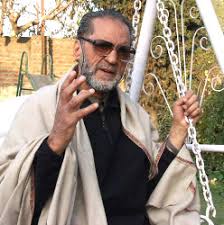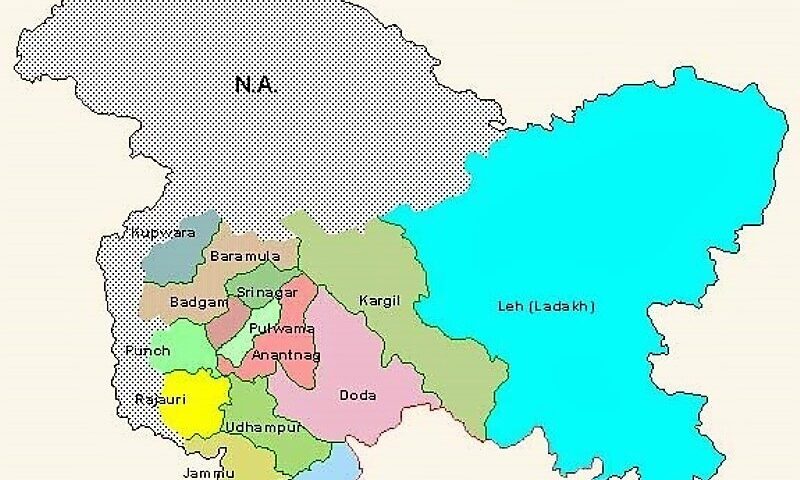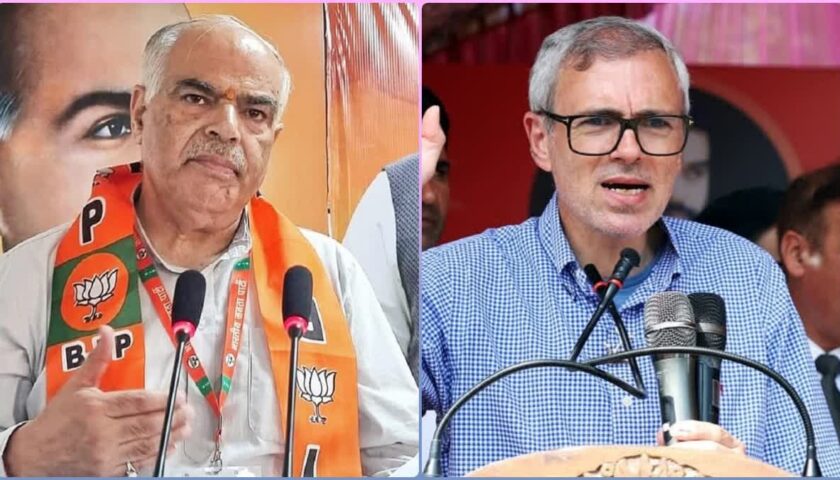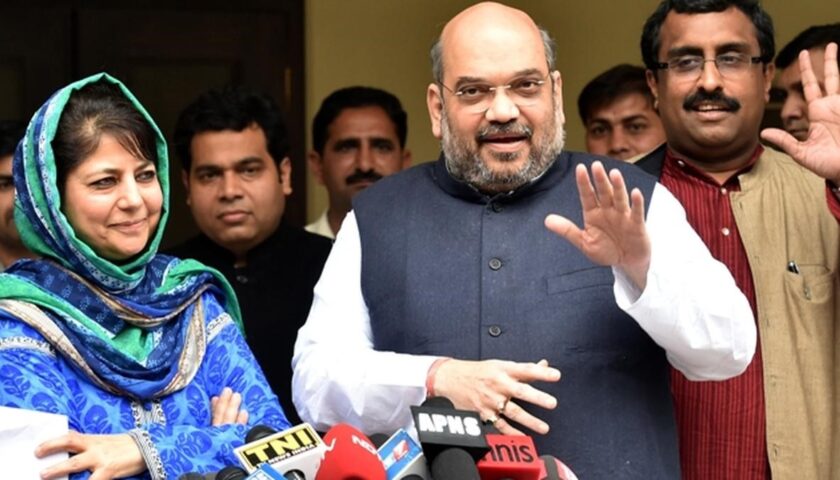National Conference president Farooq Abdullah on Sunday alleged that the father of BJP ally Sajad Lone, Abdul Gani Lone, had been instrumental in initiating militancy in the state.
Farooq, who has served as the state’s Chief Minister three times, said Sajad’s father had met him when his government was dismissed in January 1990. “When I was dismissed, his (Sajad’s) father met me and said he was going to Pakistan and bring the gun. I begged him not to bring the gun,” Farooq said.
The former Chief Minister said he pleaded before Lone that it would bring miseries for Kashmiris. “I told him don’t do this but he brought the gun,” Farooq told reporters on the sidelines of a party function in north Kashmir’s Baramulla district.
Lone was a senior separatist leader and also the chairman of the Hurriyat Conference. He was shot dead by unidentified gunmen, suspected to be militants, in 2002. One of Lone’s son, Bilal, is a member of the Mirwaiz Umar Farooq-led Hurriyat Conference and his other son, Sajad, are a mainstream politician and a close ally of the BJP.
Speaking at a function in Baramulla, Farooq had earlier urged governments of India and Pakistan “to replicate the spirit of the Kartarpur corridor in the state of Jammu and Kashmir by opening all routes along LoC and international border that have become vestigial post Partition”.
“I urge the governments of India and Pakistan to open the traditional routes between the two countries. This initiative will not only help boost the economic activities on both sides of the border but will also help rekindle the flame of friendship between India and Pakistan,” he said.
Farooq said his party had “no predilection for power and has never compromised on Article 370 and Article 35 A”.
“We were obligated to shore up the alliance with the PDP and INC following relentless and unfailing attacks on our special position by those who are inimical to the special status of our state. The sole purpose of the anticipated alliance was to put up a strong front against the forces which are fiddling with the working autonomy of our institutions, their hierarchy, and their basic structure,” he said.




